What Is Heart Disease?
In this article, we will recognize What Is Heart Disease? Understanding heart disease can help you take steps to protect your heart. About 697,000 people died of heart disease as stated by the Centers for Disease Control and Prevention (CDC), in 2023. Which is 1 out of every 5 deaths in the United States. These are amazing facts that prove that heart disease, is number 1.
Heart disease, a general term, covers many different disorders of the heart. It is one of the top killers in the world, so it should be something everyone knows about.
What Is Heart Disease?
Heart disease is the general term used to describe many diseases that affect the heart. The most prevalent type of heart disease is coronary artery disease, where the blood vessels that carry oxygen and nutrients to the heart, are constricted or blocked.
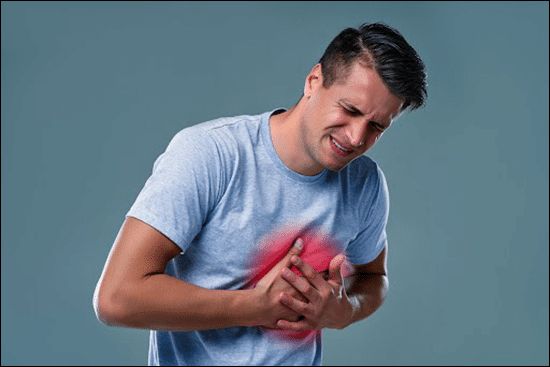
That’s how people get chest pains, heart attacks, and other stuff like that. There are many forms of heart disease, such as heart failure, arrhythmia, and valve problems.
Coronary Artery Disease (CAD): This is the most common form of heart disease. That happens when the arteries that deliver blood to the heart are clogged or narrow.
Arrhythmias are irregular heartbeats. Arrhythmias are when the heart beats too fast, too slow, or irregularly.
Heart Valve Issues: The heart contains valves that help regulate blood flow. And when these valves have problems, it causes severe medical problems
Understand Your Risk for Heart Disease
Did you know that these factors can raise your risk for heart disease? Understanding your risk is crucial in taking proactive steps to prevent cardiovascular issues and lead a healthy life.
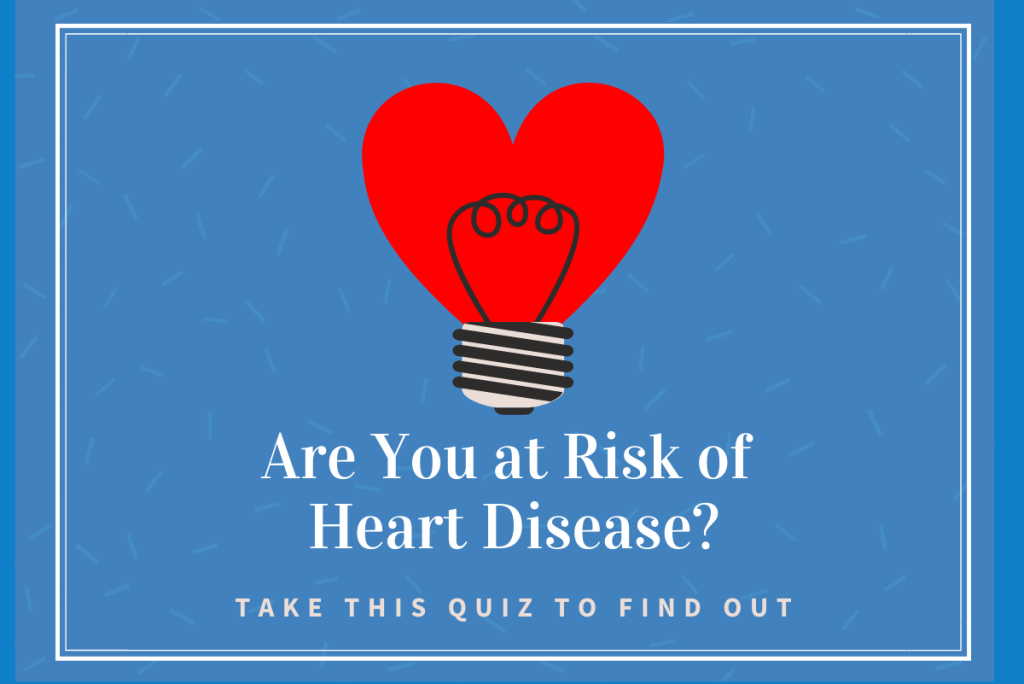
What Are the Main Risk Factors for Heart Disease?
High Blood Pressure: High blood pressure, medically known as hypertension, is a significant predictor of heart disease. It puts a strain on the heart and blood vessels, increasing the risk of heart attacks and strokes.
High Cholesterol: Elevated levels of LDL cholesterol, also known as “bad” cholesterol, can lead to the buildup of plaque in the arteries, narrowing the blood vessels and restricting blood flow to the heart.
Smoking: Tobacco smoke contains harmful chemicals that damage the heart and blood vessels, increasing the risk of heart disease significantly.
Obesity: Being overweight or obese puts extra strain on the heart and increases the likelihood of developing conditions like diabetes and high blood pressure, which are risk factors for heart disease.
Diabetes: Uncontrolled diabetes can damage blood vessels and the heart, leading to an increased risk diseases of heart and other complications. If you know more about diabetes, you must read 10 PROMISING WAYS TO MANAGE DIET WITH DIABETES
What is a heart attack?
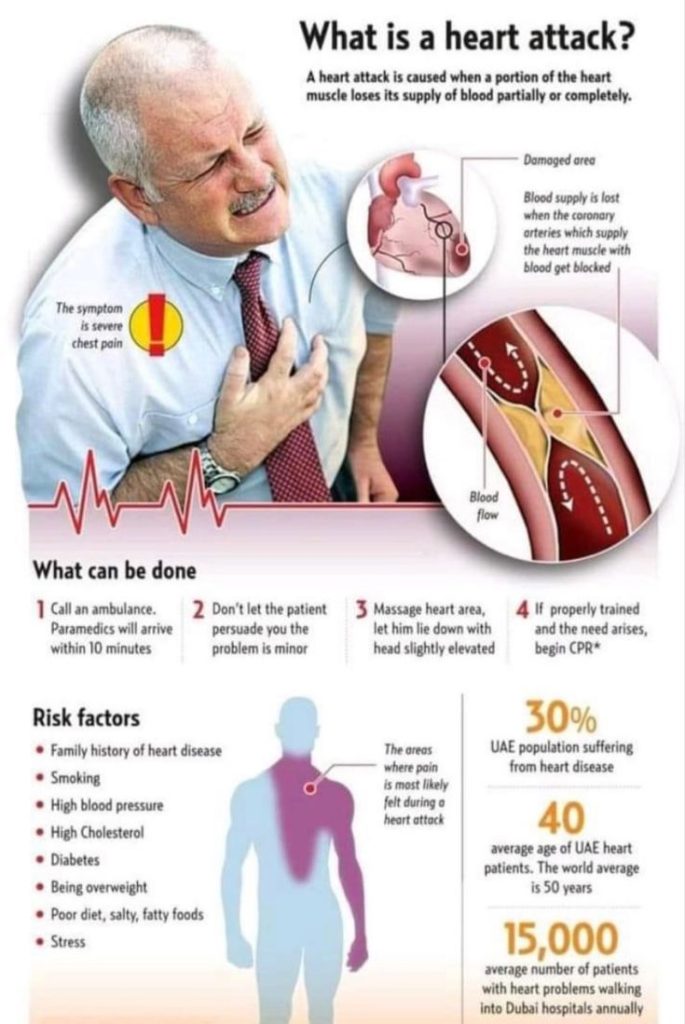
In technical terms, a heart attack, or myocardial infarction, is the damage or death of part of the heart muscle. Caused by a lack of blood supply, usually from a blocked blood vessel
Know the Signs of a Heart Attack
Chest Pain: Chest pain or discomfort is one of the key symptoms of heart Disease. This could be in the form of pain, tension, or a crushing feeling in the chest. It comes and goes or stays for minutes.
Shortness of Breath: It is also a sign of a heart attack if one experiences of difficulty breathing, or shortness of breath, especially if accompanied by chest pain. If you can’t breathe, go see a doctor right away.
Pain or Discomfort in Other Areas: Even chest pain isn’t the only symptom of a heart attack, pain in the arms, back, neck, jaw, or stomach could also be a symptom. This pain can spread from the chest to these other areas.
Nausea or Dizziness: Nausea and feeling lightheaded or dizzy are also signs of a heart attack. Do not brush these off if you have chest pain as well.
Cold Sweats: Unexplained heavy sweating, cold, or clammy skin could be a sign of a heart attack. Pay attention to sudden changes in your body temperature.
Women and Heart disease

Everyone thinks heart disease is a man’s disease, but the fact is that women are just as likely to get it as men are. Heart disease is the number one killer of men and women in the United States. Do something about your heart disease today.
To help prevent heart disease, you can:
- Eat a heart-healthy diet
- Get active
- Stay at a healthy weight
- Quit smoking and stay away from secondhand smoke
- Control your cholesterol, blood glucose (sugar), and blood pressure
- Drink alcohol only in moderation
- Manage stress
- Get enough sleep
Am I at risk for Heart Disease?
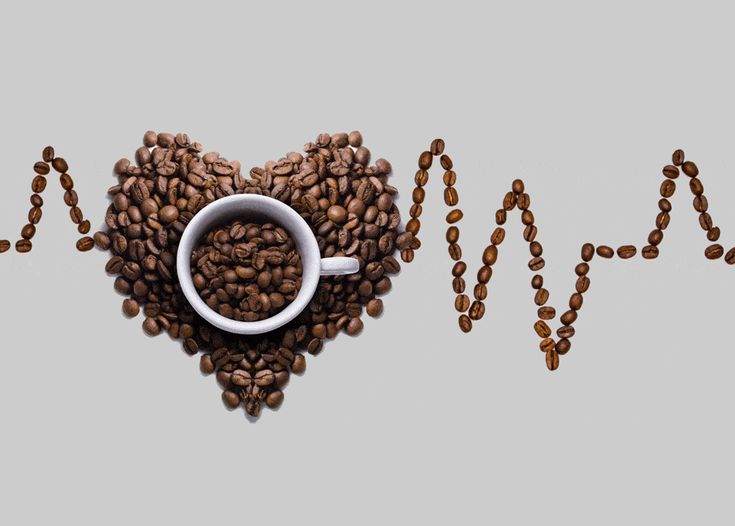
what are heart problems? Heart disease isn’t just a problem for the elderly. It could happen to anyone, and knowledge of your risk is the first step to leading a healthier life. Are you wondering if you’re at risk? Let’s break it down
Key Risk Factors You Should Know About
Understanding your risk factors is similar to knowing the members of your favorite sports team. That makes you know who is strong and who isn’t or who might need a little support. Here are the big ones:
Age and Gender
The older you get the higher chance of heart disease. Men typically have a higher chance earlier in life, while women’s risks catch up after menopause. It’s almost as if it is a race and the guys have a head start but the women are not far behind.
Family History
Does heart disease run in your family? If it does, then yeah, you might just have to pay extra attention. Genetics plays a significant role in your heart health. Some people are born with blue eyes or curly hair, but others may be born with a predisposition to heart problems.
Lifestyle Choices
It is not just what you eat but also how much you move and even how you handle stress that can affect your heart. Eating a lot of processed foods and sugars can be similar to putting sludge in your engine. It will slow things down. However, on the other side, exercise, and eating healthy foods will keep your heart functioning like a well-oiled engine.
Smoking and Alcohol Use
Then there is the smoking issue, a HUGE risk factor for heart disease. It damages your blood vessels and can lead to a pile of problems. The same goes for alcohol, too much alcohol causes high blood pressure, which leads to a higher risk of heart disease. Imagine trying to drive a car with a flat tire; it’s just not going to work well.
Recognizing Symptoms
Sometimes, heart disease can whisper instead of a shout. Awareness of symptoms is crucial. Common signs include:
- Chest pain or discomfort
- Shortness of breath
How to Assess Your Own Risk
Reflect on your lifestyle. Are you active? Do you manage stress well? How’s your diet? It’s also a good idea to consult with a healthcare professional who can help assess your overall health through tests and evaluations.
The Importance of Regular Check-Ups
Getting regular checkups is essential for catching heart disease early. Your blood pressure and cholesterol are the vital signs of your heart. Keeping track of these numbers can help you steer clear of potential problems down the line.
What is blood pressure?

Your blood pressure is the force that your blood exerts against the walls of your arteries. Imagine a garden hose flowing through—when the water flows through a garden hose, there’s a certain amount. The tighter the hose of pressure.
The harder you squeeze the hose, the more pressure. Similarly, pressure increases. In the same way, when your heart beats your blood out, it creates pressure to help your blood flow.
Blood vessels The Numbers behind constrict or your heart beats faster Blood, your blood pressure increases. Pressure
Important blood pressure is measured in millimeters of mercury (mm Hg) and two numbers. The first number (overall health) of your blood pressure is called the systolic pressure. And that occurs when your heart beats. If the high tide is the only thing holding it back.
How to improve heart health quickly?
Maintaining good heart health is crucial for longevity and quality of life. If you treat your heart right it will be less likely to develop heart disease and you will be a much healthier person. Better heart health means more energy, a better mood, and an overall better feeling.
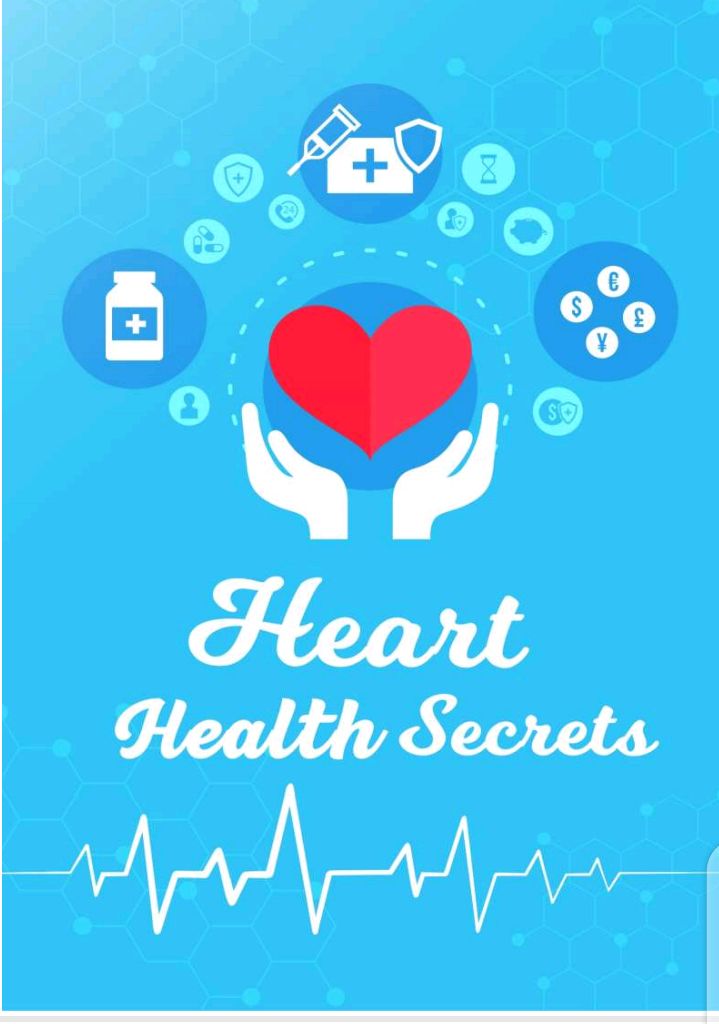
Tips for Improving Heart Health Quickly
Eat a Heart-Healthy Diet
Fruits, vegetables, whole grains, and lean proteins are good for the heart, and it can be repaired in a short amount of time through diet. And not to mention limiting saturated fats, salt and sugar, which are also good for the heart. Try to add salmon, nuts, seeds, and leafy greens to your meals, these foods are good for your heart.
Get Regular Exercise
Physical activity is essential for a healthy heart. 30 minutes of moderate exercise at least 5 days a week. Whether you prefer walking, jogging, cycling, or swimming, find an activity you enjoy and stick with it. It strengthens the heart muscle, improves circulation, and decreases the chance of heart disease.
Manage Stress
Chronic stress can hurt heart health. Learn to cope with stress healthily, through meditation, yoga, deep breathing, and going out in nature. Relaxation techniques can help reduce blood pressure, lower heart rate, and promote overall heart health.
Quit Smoking
Smoking is a leading cause of heart disease. One of the best things that you can do for your heart if you smoke is to quit. Smoking damages the heart and blood vessels, leading to an increased risk of heart attack and stroke. Seek support from healthcare professionals or smoking cessation programs to help you quit for good.
Best heart health supplements
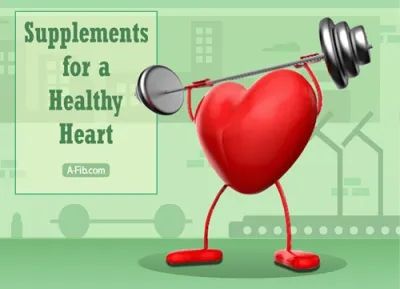
Top Heart Health Supplements to Consider
When it comes to choosing the best heart health supplements, there are several key nutrients and antioxidants to look for. Some of the most well-known supplements that promote cardiovascular health are:.
Omega-3 Fatty Acids
Omega-3 fatty acids are nutrients that are not only “essential”, but they have been shown to have many cardiovascular benefits. These good fats will help decrease inflammation, lower cholesterol, and just promote general cardiovascular health.
Coenzyme Q10 (CoQ10)
Coenzyme Q10 is a potent antioxidant that plays a vital role in cellular energy production. It is known to be heart-healthy in that it strengthens the heart muscle and increases cardiovascular efficiency.
Magnesium
Magnesium is a very important mineral by the body. Especially the heart. It can assist in maintaining normal blood pressure levels, decreasing the likelihood of arrhythmias, and promoting a stronger functioning heart in general.
Vitamin D
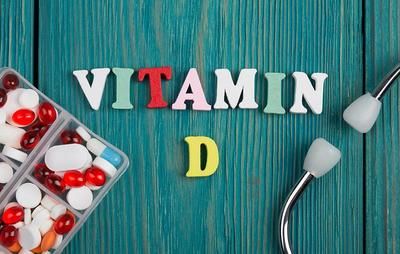
Vitamin D is associated with heart health because it controls blood pressure, inflammation, and general cardiovascular function. The majority of people don’t get enough vitamin D, so this would be a good supplement for heart health.
Garlic
Garlic has long been known for its heart-healthy properties. It can help to lower cholesterol levels, lower blood pressure, and improve circulation, all very important factors in heart health.
Heart health test
A heart disease test is a type of screening process used to check for the risk factors for heart disease. This could be anything from a blood pressure test, to checking cholesterol levels to checking blood sugar levels to an electrocardiogram (EKG), which checks the condition of your heart.
If you get a heart wellness test, then you can find any problems before it is too late and take the precautions to avoid heart disease.

Why Should You Get a Heart Health Test?
- Early Detection: A heart health test can help detect any underlying heart conditions or risk factors early on, allowing for timely intervention and treatment.
- Preventive Care: Through constant checking of your heart, you can also take precautions to diseases like heart disease, You can live a healthy lifestyle, eat healthy, and exercise.
- Risk Assessment: A heart health test is a great way to determine your general cardiovascular condition and to better understand your chances of having heart problems later in life.
How Often Should You Get a Heart Health Test?
The frequency of heart health tests may vary depending on your age, family history, lifestyle factors, and pre-existing medical conditions.
In general, it is recommended to get a heart health test at least once a year or as advised by your healthcare provider. Regular monitoring of your heart health is crucial for early detection and prevention of heart diseases.
What Can You Expect During a Heart Health Test?
During a heart health test, your healthcare provider may perform various assessments to evaluate your heart health. These assessments may include:
- Blood pressure measurement
- Cholesterol levels test
- Blood sugar levels test
- Electrocardiogram (ECG)
- Stress test (if necessary)
Conclusion
What is heart disease? Heart disease is essential to how to control the disease. Patients can limit the effect heart disease has on their lives by controlling their risk factors. The right treatment, and living a healthy lifestyle. Keep in mind, that with heart disease, early discovery and treatment leads to a positive outcome.
People ask Question
What are the warning signs of heart disease?
Symptoms of heart disease (which may be signs of a heart attack) are chest pains, difficulty breathing, fatigue, and lightheadedness.
Can heart disease be prevented?
Yes, it can be prevented through a healthy lifestyle, controlling the risk factors, and going to doctor’s appointments regularly.
Is heart disease hereditary?
Yes, heart disease can be hereditary. If you have a family history of heart disease, you may be at higher risk. However, genetics is just one factor; lifestyle choices like diet, exercise, and smoking also play a significant role.
What is this heart attack vs. heart failure?
A heart attack happens when the blood flow to a particular section of the heart is stopped by a blood clot. It damages the heart muscle. Heart failure, on the other hand, is a condition where the heart is unable to pump blood effectively, leading to symptoms like shortness of breath, fatigue, and swelling in the legs.
What should I not eat if I have heart disease?
Heart disease, don’t eat too much of those saturated fats, trans fats, cholesterol, sodium, and added sugars. Processed foods, red meat, whole milk dairy products, fried foods, soda, and too much salt.


I am actually thankful to the owner of this website who has
shared this fantastic paragraph at at this time.
Thank you for your precious time and for liking our website and articles. I hope you will like all our articles in the future.
Greetings from Carolina! I’m bored at work so I decided to browse
your blog on my iphone during lunch break. I enjoy the
information you present here and can’t wait to take a look
when I get home. I’m amazed at how fast your blog loaded on my phone ..
I’m not even using WIFI, just 3G .. Anyways, fantastic site!
Thanks for liking our website and enjoying our articles. I hope you like all our new articles as well.
You are so interesting! I do not think I have read through anything like that before.
So good to find another person with genuine thoughts
on this issue. Seriously.. thank you for starting this up.
This web site is one thing that’s needed on the internet,
someone with a little originality!
To restore your driver’s permit after a suspension, you may need SR22
insurance. This sort of insurance coverage aids verify that you’re monetarily accountable in the event that of an accident.
We are a group of volunteers and starting a new scheme in our
community. Your web site offered us with valuable info to work on. You’ve done an impressive job and our
entire community will be grateful to you.
SR22 insurance is actually essential for drivers who’ve possessed
their certificate suspended because of violations.
The moment you secure SR22 insurance, make sure to
keep it active to avoid any type of issues with your driving privileges.
In the realm of dietary supplements and health aids, there
is a vast array of products claiming various benefits, from improved digestion to reduced inflammation.
Also visit my web page; Flush Factor Plus Ingredients
In the realm of health and wellness, dietary supplements have
gained immense popularity for their role in supporting various bodily functions.
Also visit my site – Flush Factor Plus Ingredients
In the realm of health and wellness, dietary supplements have
gained immense popularity for their role in supporting various bodily functions.
Also visit my site – Flush Factor Plus Ingredients
What’s up everybody, here every person is sharing these kinds of knowledge, therefore it’s pleasant
to read this website, and I used to pay a visit this webpage everyday.
Pretty! This has been an extremely wonderful post.
Many thanks for providing this information.